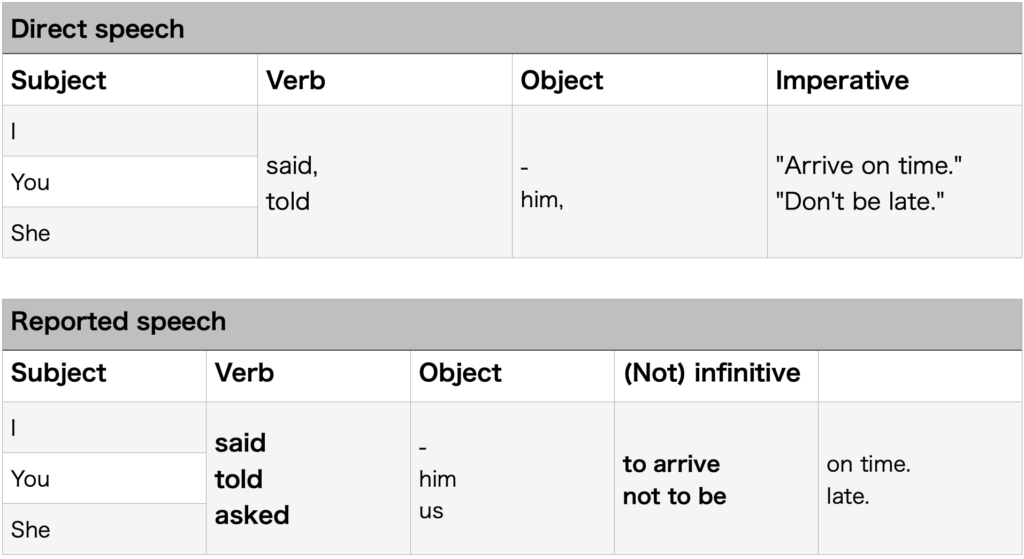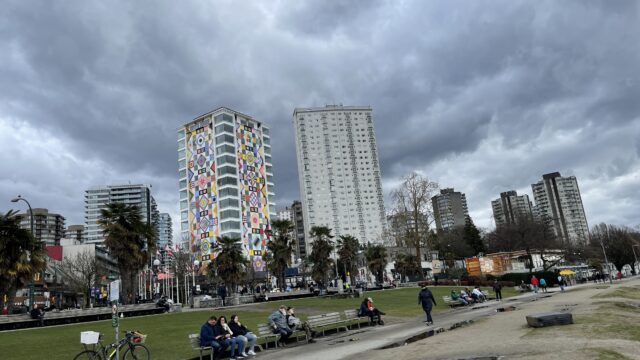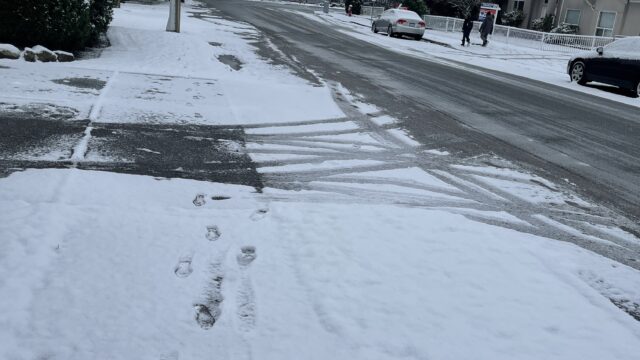こんにちは、こんばんは、おはようございます!
元不登校中学校卒業時英語の成績2だった英語の先生Kazumaです。
今日は、【留学先生日記】#19 直接話法 間接話法 Direct/Reported speechを説明します。
高校生で習う表現ですが、思った以上に日常生活で使います。
会話、読解様々な場面で使います。
そんな引きこもりの元もども部屋お兄さんが何となく説明していくので最後まで読んでいただけると嬉しいです。
私は、日本語が母国語で現在カナダのバンクーバーで語学留学をしています。
大学生の頃、ブルガリアに2ヶ月間いたので、少しだけブルガリア語ができます。
最近、身近な人の母国語がタガログ語、マンダリン、ポルトガル語だったりするのでブルガリア語のように緩く勉強はじめました。
そんな私が異なる言語を使う際に”今話している単語の品詞は名詞でその後に動詞を過去形にして”とか考えたことがありません。
だから私は単語、表現、文法をイメージで覚えます。
みなさん母国語ってそうやって習得しています。新しい言語を勉強して習得するにあたって、単語や文章のイメージができることがとても大切です。
かんたんに説明をすると、”英語を英語で学び、英語で理解すること”です。
Vocabulary
be confused: to not understand something clearly
clarify: to try and make something easier to understand
figure out: to understand or solve something
misunderstand: to understand something in the wrong way
assume: to think that something is true even though you
don’t have proof
realize: to finally understand something that you did not
know before
Vocabulary Practice
Complete the sentences. Use words from “Vocabulary.”
1. It’s easy to ( ) the question, so listen carefully.
2. I am totally ( ) Can you explain that again?
3. I don’t know where Bora is, but I ( ) she is still coming.
4. We have to ( ) how to solve this problem together.
5. I didn’t ( ) how difficult this class was going to be until I failed
my first test.
6. Pictures can help ( ) written instructions.
A.1.misunderstand 2. confused 3.assume 4.figure out 5.assume 6.clarify
提案する表現 Making suggestions
Use said, told, and asked with an infinitive to report past orders and requests.

Notes
• Never use a noun or pronoun as an object with said.
• Always use a noun or pronoun as an object with told and asked.
• Never use ask with imperatives in direct speech.
• Always use a comma before the imperative in direct speech.
I said, “Arrive on time.”
私は「時間通りに到着しなさい」と言いました。
She told him, “Don’t be late.”
彼女は彼に「遅れないで」と言った。
(語順)主語S+動詞V(said/told)+(,)カンマ+目的語O+”〜.”
*saidのとき目的語はいらない
語順に関しては全く難しくありませんが、日本の句読点と少し異なる点があります。
直接話法は、かぎかっこを使った文です。
I said, “Arrive on time.” 私は「時間通りに到着しなさい」と言いました。
She told him, “Don’t be late.” 彼女は彼に「遅れないで」と言った。
日本語と英語の語順が異なるのは一目瞭然だと思います。
said, toldが一番最後に来ます。
日本語は「〜」。ですが、英語は”〜.”(“ダブルコーテーション)になります。
小学生でかぎかっこの使いかたを学びますが、結構忘れていますよねwww
I said to arrive on time.
私は時間通りに到着すると言った。
She told him not to be late.
彼女は彼に遅れないように言った。
(語順)主語S+動詞V(said/told)+to+動詞の原型
*saidのとき目的語はいらない
語順に関しては直接話法より難しくありませんが、to不定詞が入ってくるので、文法的には高度になります。
直接話法と比べると少しまわりくどい気がしますよね。
I said to arrive on time. 私は時間通りに到着すると言った。
She told him not to be late. 彼女は彼に遅れないように言った。
日本語と英語の語順が異なるのは一目瞭然だと思います。
(“ダブルコーテーション)がないからどこが話したことなのかわかりにくいです。
to不定詞がそこに当たるので、仕組みさえ理解でればかんたんです。
Practice
Read the email. Complete the sentences about the email.
From:Design Manager
To:Design Department
Team,
Tomorrow morning, we will have visitors from Rainbow Printing. There will be
a design department meeting at 10:00 A.M. Then Rainbow will tour our department.
I have a few requests:
1. Please set up the room ahead of time.
2. Clean up all workspaces in advance.
3. Please arrive by 9:30 and greet the visitors.
4. Don’t be late.
5. Don’t bring laptops to the meeting.
6. Be available for questions after the meeting.
Thank you everyone for your help! See you at the meeting.
1. She told us ( ).
2. She asked us ( ).
3. She said ( ).
4. She told us ( ).
5. She said ( ).
6. She asked us ( ).
Read the sentences. Then write a sentence using reported speech using the same verb.
7. Sara said, “Please arrive by 9:00 A.M.”
Sara ( ).
8. The office manager told us, “Reserve the meeting rooms online.”
The manager ( ).
9. We told him, “Please get coffee for the meeting.
We ( ).
10. Carmen said, “Review the brochure.”
She ( ).
11. My boss told me, “Please pick up the client at the hotel.”
My boss ( ).
12. The president told us, “Don’t be late for the company meeting.”
The president ( ).
13. They said, “Don’t come in tomorrow.”
They ( ).
A.1. to set up the room ahead of time
2. to clean up all workspaces in advance
3. to arrive by 9:30 and greet the visitors
4. not to be late
5. not to bring laptops to the meeting
6. to be available for questions after the meeting
7. said to arrive by 9:00 A.M.
8. told us to reserve the meeting rooms online
9. told him to get coffee for the meeting
10. said to review the brochure
11. told me to pick up the client at the hotel
12. told us not to be late for the company meeting
13. said not to come in tomorrow
まとめ
直接話法 間接話法 Direct/Reported speechでした。
中学生、高校生で習うものですが、思った以上に使う表現です。
使い分けについては、高校生でやります。
たいした説明ができないポンコツが、ムダを省いてかんたんにまとめてみました。
エポスカードは、海外旅行保険が自動付帯のクレジットカード


















